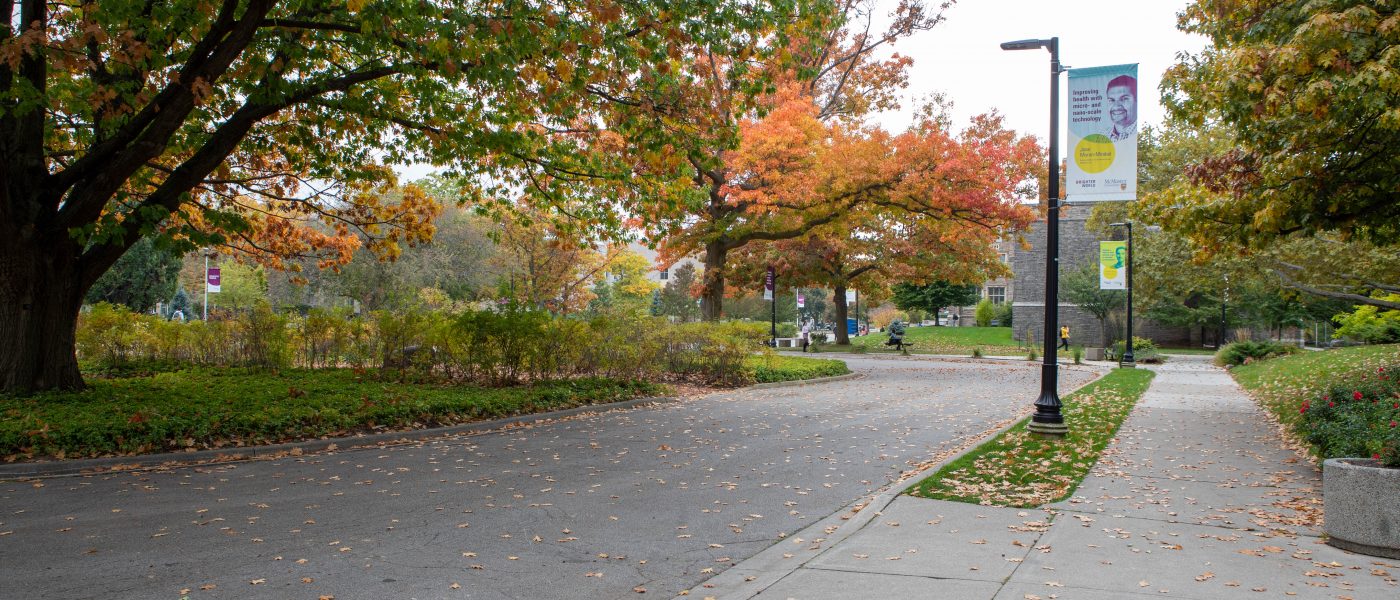Planning your travel to Hamilton? We’re here to help.
Preparing for your arrival
Before making arrival plans, all international graduate students must:
- be in possession of a valid study permit or “Letter of Introduction”(may also be known as a “Port of Entry letter”) that shows approval for a study permit;
- be enrolled or plan to enrol in McMaster University.
Document checklist
Make sure to have all your documents with you before you travel to Canada. Do not place any of these documents in your checked luggage.
To enter Canada, you must have:
- A valid passport or travel document
- Depending on your country of citizenship, either a valid Electronic Travel Authorization (eTA) or visitor visa (temporary resident visa)
- Note: The relevant eTA or visa will be issued to you automatically with your first approved study permit.
- A valid study permit or the letter of introduction the visa office sent you when they approved your study permit (this letter should contain your permit reference number).
- Your offer letter (new students) or confirmation of enrolment letter (current students).
- Proof of funds to support your stay in Canada
- no criminal or immigration-related convictions (unless pardon has been granted or deemed rehabilitated)
- valid immigration medical exam results, if applicable (find out if you need a medical exam) and be in good health
When to arrive
There is no set time frame for you to arrive in Canada before you begin your studies. You should arrive to give yourself a reasonable amount of time to prepare before you start studying. If you are unsure if your arrival time may be considered reasonable to enter Canada, contact the Canada Border Services Agency(CBSA).
For the latest date you must arrive by, contact your academic program. Some programs may require students to arrive on campus for orientation activities before the first day of classes.
After you arrive
Follow the instructions and signage at the airport or your port of entry. It is at the discretion of the border officer to issue your study permit and approve your entry to Canada. Once you receive your study permit, make sure to carefully review the information indicated on the permit (eg. your name, date of birth, etc.) and correct any errors with the officer before leaving the student processing desk.
Get your Social Insurance Number (SIN)
If you arrive at the Toronto Pearson Airport during business hours, you may be able to get your Social Insurance Number (SIN) at the Service Canada Centre inside the airport. To find the Service Canada Centre location, look for signage for “Service Canada” or “SIN@Landing”, or ask the staff at the airport.
If the Service Canada Centre is not open or available at the time of your arrival, you may apply for your Social Insurance Number online, by mail, or in-person at your local Service Canada Centre.
Traveling from Toronto Pearson Airport to Hamilton
Most students travelling to Hamilton by air land at the Toronto Pearson Airport. McMaster University is about 68km away from this airport. Depending on the traffic situation at the time of your travel, travel time may range between 45 minutes to 1.5 hours. Public and private transportation options are available.
Public transportation
The only public transit option is Go Bus route 40 (Hamilton/Richmond Hill Pearson Express). Check the bus schedule or use the Go Transit trip planning tool to plan your trip. The bus station is located on the ground level of Terminal 1. If you land in Terminal 3, you can take the free train at the airport to get to Terminal 1, following the signage at the airport. The standard fare for this trip is around $12.70 per person, with possible discounts if you have a PRESTO card.
Private Transportation
Private transportation is available either through pre-booked services, rideshare services, or taxis at the airport. Visit Toronto Pearson Transportation and Parking for more information. There is no standard rate so the cost of services can vary. For reference, private taxi service from Toronto Pearson Airport to Hamilton may cost over $120.
New international grads starting in Fall 2024
New international graduate students arriving between August 3 – September 3, 2024 may be eligible for McMaster’s Airport Transportation Program for new international and exchange students. Visit the International and Exchange Student Experience website for more information about this program.

